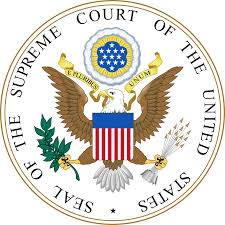
In this post, I’ll explain the abuse of discretion standard, which appellate courts apply to discretionary rulings by lower courts. Essentially, when the rules endow the trial judge with the discretion to decide an issue, the appellate courts do not want to spend their time and resources on requests to substitute their discretion for the trial judge’s discretion nor do they want to undermine the trial judge’s authority. Accordingly, an appellate court will not disturb a trial judge’s discretionary decision on appeal unless it is “arbitrary, irrational, or contrary to law.”
Discovery Rulings Illustrate Appellate Courts’ Deference
One area where the abuse of discretion standard arises particularly frequently is discovery. Almost every discovery decision that a district court judge makes is squarely within the court’s discretion, and the appellate courts have made it clear that they prefer not to spend their time second guessing the district court judge’s management of the discovery process, including sanctions the district court imposes for discovery transgressions. Accordingly, circuit courts generally uphold any reasonable discovery sanction fashioned by the district court, even if the appellate court might have made a different choice. To overturn the district court’s choice of a discovery sanction, a party must show that no reasonable person would agree that the sanction was appropriate. See Equal Emp. Opportunity Comm’n v. Wal-Mart Stores E., L.P., ., 46 F.4th 587 (7th Cir. 2022).
Within the discovery realm, case-dispositive sanctions like dismissal are viewed as drastic sanctions that courts should impose only as a matter of last resort. District judges are instructed to consider factors like the plaintiff’s pattern of and personal responsibility for violating orders, the prejudice to others from the noncompliance, the possible efficacy of lesser sanctions, and any demonstrated merit to the suit. Yet even under this framework, circuit courts are quite reluctant to second-guess the district court judges. Indeed, it is so difficult to win an appeal based on a discovery ruling that it’s only worth the time and money to bring such an appeal if the ruling is particularly egregious or the stakes are extremely high.
Circumstances that Warrant Reversal
So, when might an appeal of an issue governed by the abuse of discretion standard succeed? A decision will be arbitrary, and thus reversible, if the district court makes it without considering the evidence in the record before it. The court is not required to consider every piece of evidence “with the utmost scrutiny,” but failure to consider evidence at all or a serious mischaracterization of the evidence can constitute an abuse of discretion. See Calderon-Escobar v. Att’y Gen. United States, 2025 WL 66347 (3d Cir. 2025).
Likewise, failure to give an explanation for a discretionary decision can be an abuse of discretion. Banco Mercantil de Norte, S.A. v. Paramo, 114 F.4th 757, 762 (5th Cir. 2024). Thus, the court should provide an explanation for its discretionary decisions and that explanation should address the evidence in the record to the extent that it demonstrates consideration of that evidence. And you, as a lawyer who wants the court’s ruling to stand up on appeal if it goes in your favor, should draft your briefs in a way that addresses all of the evidence in the record and facilitates the court’s explanation.
Finally, a lower court decision will be contrary to law, and thus reversible, when the judge recites or applies the wrong legal standard or principle. Thus, for example, in this case, the trial judge did not properly understand the difference between a descriptive trademark and a suggestive trademark. Accordingly, even though the judge’s decision included some discretion, the judge’s ruling was an abuse of discretion because the judge applied the wrong legal framework. See City of New York by & through FDNY v. Henriquez, 98 F.4th 402 (2d Cir. 2024).
Advice
Understanding this pleading standard is helpful at both the appellate level and at the trial level. At the appellate level, you are doomed to failure if you simply argue that the trial judge got it wrong, even if your argument is compelling. Rather, frame your argument in terms of the test—craft an argument that the trial court’s ruling was “arbitrary, irrational, or contrary to law.” And at the trial court level, make sure your briefing guides the judge to apply the correct legal standard and addresses the evidence before the court to minimize your opponent’s grounds for a successful appeal.
******
Steve is one of the authors of The Federal Litigator, a monthly publication from Thomson Reuters that reports on cases of general interest to those who practice in the federal courts. Each fall, The Federal Litigator reports on amendments to the federal court rules. This article is an excerpt from the April 2025 edition of The Federal Litigator that is reprinted with the publisher’s permission (© 2025 Thomson Reuters). Further reproduction of any kind is strictly prohibited. For further information about this publication, please click here, or call 800.328.9352. Individual case summaries can be accessed through Westlaw. Steve is also one of the authors of the Federal Civil Rules Handbook, an annual publication from Thomson Reuters containing detailed, practical commentary providing a blueprint for the application of the Federal Rules of Civil Procedure and related jurisprudential concepts. To purchase the Handbook, please click here.


